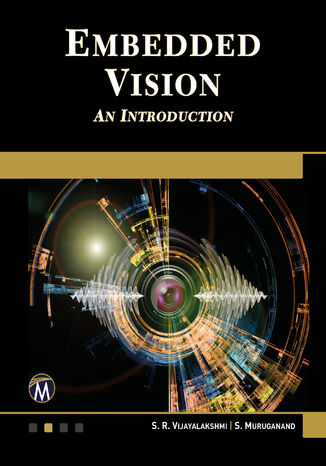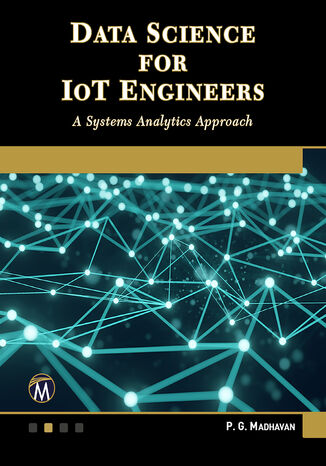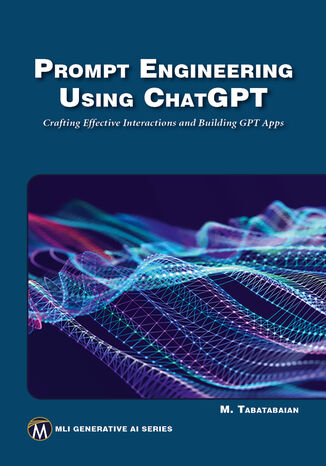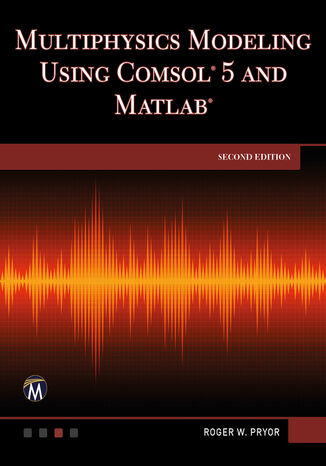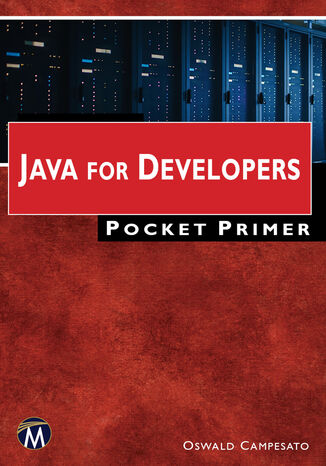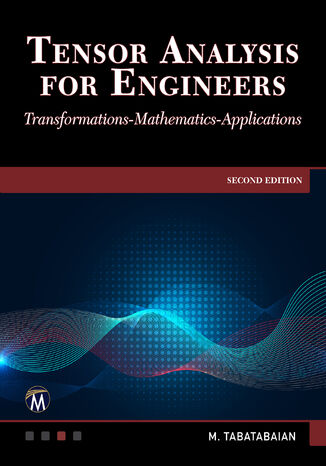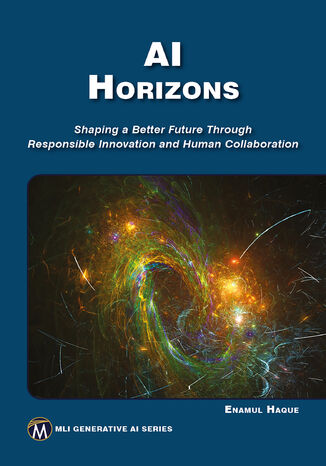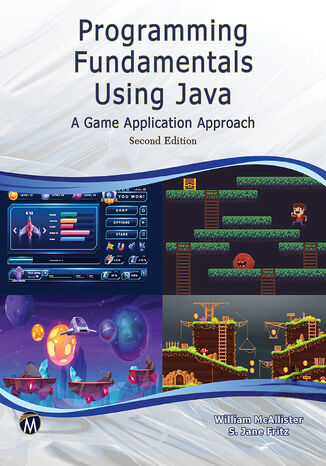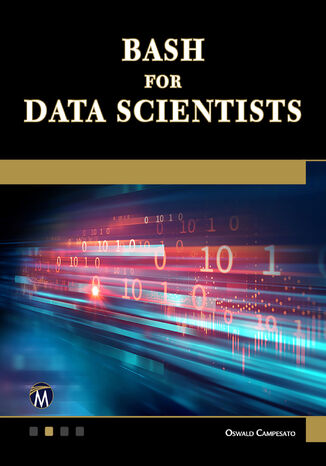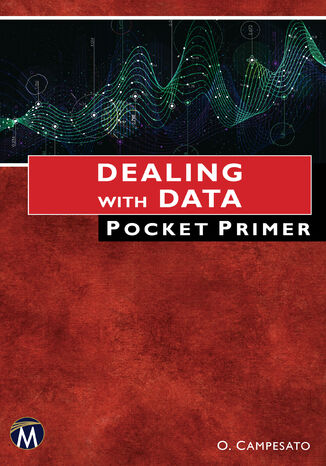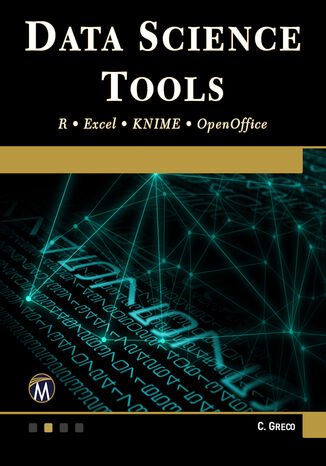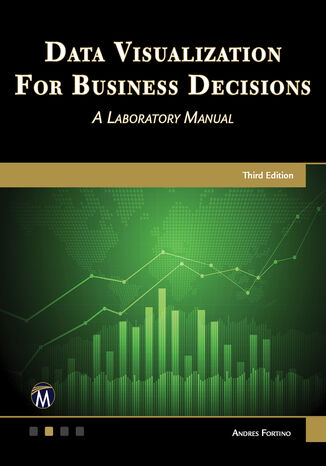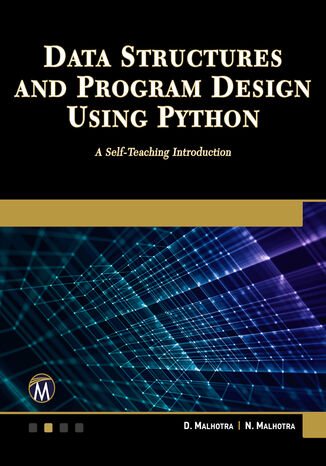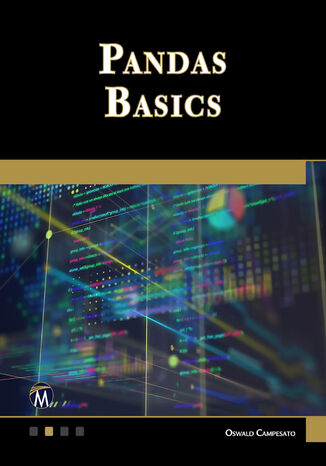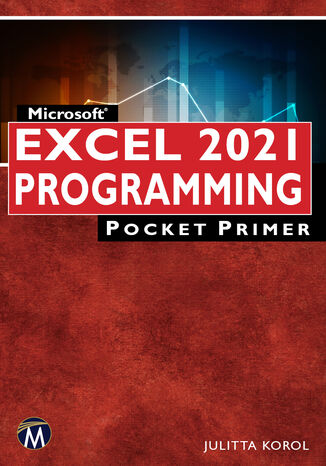Kategorien
-
- Bitcoin
- Geschäftsfrau
- Coaching
- Controlling
- E-Business
- Ökonomie
- Finanzen
- Börse und Investitionen
- Persönliche Kompetenzen
- Computer im Büro
- Kommunikation und Verhandlungen
- Kleines Unternehmen
- Marketing
- Motivation
- Multimedia-Training
- Immobilien
- Überzeugung und NLP
- Steuern
- Sozialpolitik
- Handbȕcher
- Präsentationen
- Führung
- Public Relation
- Berichte, Analysen
- Geheimnis
- Social Media
- Verkauf
- Start-up
- Ihre Karriere
- Management
- Projektmanagement
- Personal (HR)
-
- Architektura i wnętrza
- Sicherheit und Gesundheit am Arbeitsplatz
- Biznes i Ekonomia
- Haus und Garten
- E-Business
- Ekonomia i finanse
- Esoterik
- Finanzen
- Persönliche Finanzen
- Unternehmen
- Fotografie
- Informatik
- HR und Gehaltsabrechnung
- Frauen
- Computer, Excel
- Buchhaltung
- Kultur und Literatur
- Wissenschaftlich und akademisch
- Umweltschutz
- meinungsbildend
- Bildung
- Steuern
- Reisen
- Psychologie
- Religion
- Landwirtschaft
- Buch- und Pressemarkt
- Transport und Spedition
- Gesundheit und Schönheit
-
- Office-Programme
- Datenbank
- Bioinformatik
- IT Branche
- CAD/CAM
- Digital Lifestyle
- DTP
- Elektronik
- Digitale Fotografie
- Computergrafik
- Spiele
- Hacking
- Hardware
- IT w ekonomii
- Wissenschaftliche Pakete
- Schulbücher
- Computergrundlagen
- Programmierung
- Mobile-Programmierung
- Internet-Server
- Computernetzwerke
- Start-up
- Betriebssysteme
- Künstliche Inteligenz
- Technik für Kinder
- Webmaster
-
- Anthologien
- Ballade
- Biografien und Autobiografien
- Für Erwachsene
- Drama
- Tagebücher, Memoiren, Briefe
- Epos
- Essay
- Science Fiction
- Felietonys
- Fiktion
- Humor, Satire
- Andere
- Klassisch
- Krimi
- Sachbücher
- Belletristik
- Mity i legendy
- Nobelpreisträger
- Kurzgeschichten
- Gesellschaftlich
- Okultyzm i magia
- Erzählung
- Erinnerungen
- Reisen
- Gedicht
- Poesie
- Politik
- Populärwissenschaftlich
- Roman
- Historischer Roman
- Prosa
- Abenteuer
- Journalismus
- Reportage
- Romans i literatura obyczajowa
- Sensation
- Thriller, Horror
- Interviews und Erinnerungen
-
- Archäologie
- Bibliotekoznawstwo
- Filmwissenschaft
- Philologie
- Polnische Philologie
- Philosophie
- Finanse i bankowość
- Erdkunde
- Wirtschaft
- Handel. Weltwirtschaft
- Geschichte und Archäologie
- Kunst- und Architekturgeschichte
- Kulturwissenschaft
- Linguistik
- Literaturwissenschaft
- Logistik
- Mathematik
- Medizin
- Geisteswissenschaften
- Pädagogik
- Lehrmittel
- Populärwissenschaftlich
- Andere
- Psychologie
- Soziologie
- Theatrologie
- Teologie
- Theorien und Wirtschaftswissenschaften
- Transport i spedycja
- Sportunterricht
- Zarządzanie i marketing
-
- Sicherheit und Gesundheit am Arbeitsplatz
- Geschichte
- Verkehrsregeln. Führerschein
- Rechtswissenschaften
- Gesundheitswesen
- Allgemeines. Wissenskompendium
- akademische Bücher
- Andere
- Bau- und Wohnungsrecht
- Zivilrecht
- Finanzrecht
- Wirtschaftsrecht
- Wirtschafts- und Handelsrecht
- Strafrecht
- Strafrecht. Kriminelle Taten. Kriminologie
- Internationales Recht
- Internationales und ausländisches Recht
- Gesundheitsschutzgesetz
- Bildungsrecht
- Steuerrecht
- Arbeits- und Sozialversicherungsrecht
- Öffentliches, Verfassungs- und Verwaltungsrecht
- Familien- und Vormundschaftsrecht
- Agrarrecht
- Sozialrecht, Arbeitsrecht
- EU-Recht
- Industrie
- Agrar- und Umweltschutz
- Wörterbücher und Enzyklopädien
- Öffentliche Auftragsvergabe
- Management
-
- Afrika
- Alben
- Südamerika
- Mittel- und Nordamerika
- Australien, Neuseeland, Ozeanien
- Österreich
- Asien
- Balkan
- Naher Osten
- Bulgarien
- China
- Kroatien
- Tschechische Republik
- Dänemark
- Ägypten
- Estland
- Europa
- Frankreich
- Berge
- Griechenland
- Spanien
- Niederlande
- Island
- Litauen
- Lettland
- Mapy, Plany miast, Atlasy
- Miniführer
- Deutschland
- Norwegen
- Aktive Reisen
- Polen
- Portugal
- Andere
- Przewodniki po hotelach i restauracjach
- Russland
- Rumänien
- Slowakei
- Slowenien
- Schweiz
- Schweden
- Welt
- Türkei
- Ukraine
- Ungarn
- Großbritannien
- Italien
-
- Lebensphilosophien
- Kompetencje psychospołeczne
- zwischenmenschliche Kommunikation
- Mindfulness
- Allgemeines
- Überzeugung und NLP
- Akademische Psychologie
- Psychologie von Seele und Geist
- Arbeitspsychologie
- Relacje i związki
- Elternschafts- und Kinderpsychologie
- Problemlösung
- Intellektuelle Entwicklung
- Geheimnis
- Sexualität
- Verführung
- Aussehen ind Image
- Lebensphilosophien
-
- Bitcoin
- Geschäftsfrau
- Coaching
- Controlling
- E-Business
- Ökonomie
- Finanzen
- Börse und Investitionen
- Persönliche Kompetenzen
- Kommunikation und Verhandlungen
- Kleines Unternehmen
- Marketing
- Motivation
- Immobilien
- Überzeugung und NLP
- Steuern
- Sozialpolitik
- Handbȕcher
- Präsentationen
- Führung
- Public Relation
- Geheimnis
- Social Media
- Verkauf
- Start-up
- Ihre Karriere
- Management
- Projektmanagement
- Personal (HR)
-
- Anthologien
- Ballade
- Biografien und Autobiografien
- Für Erwachsene
- Drama
- Tagebücher, Memoiren, Briefe
- Epos
- Essay
- Science Fiction
- Felietonys
- Fiktion
- Humor, Satire
- Andere
- Klassisch
- Krimi
- Sachbücher
- Belletristik
- Mity i legendy
- Nobelpreisträger
- Kurzgeschichten
- Gesellschaftlich
- Okultyzm i magia
- Erzählung
- Erinnerungen
- Reisen
- Poesie
- Politik
- Populärwissenschaftlich
- Roman
- Historischer Roman
- Prosa
- Abenteuer
- Journalismus
- Reportage
- Romans i literatura obyczajowa
- Sensation
- Thriller, Horror
- Interviews und Erinnerungen
-
- Archäologie
- Philosophie
- Wirtschaft
- Handel. Weltwirtschaft
- Geschichte und Archäologie
- Kunst- und Architekturgeschichte
- Kulturwissenschaft
- Literaturwissenschaft
- Mathematik
- Medizin
- Geisteswissenschaften
- Pädagogik
- Lehrmittel
- Populärwissenschaftlich
- Andere
- Psychologie
- Soziologie
- Teologie
- Zarządzanie i marketing
-
- Lebensphilosophien
- zwischenmenschliche Kommunikation
- Mindfulness
- Allgemeines
- Überzeugung und NLP
- Akademische Psychologie
- Psychologie von Seele und Geist
- Arbeitspsychologie
- Relacje i związki
- Elternschafts- und Kinderpsychologie
- Problemlösung
- Intellektuelle Entwicklung
- Geheimnis
- Sexualität
- Verführung
- Aussehen ind Image
- Lebensphilosophien
Embedded Vision. Mastering Advanced Techniques for Real-Time Image Processing and Analysis
Mercury Learning and Information, S. R. Vijayalakshmi, S. Muruganand
Embedded vision integrates computer vision into machines using algorithms to interpret images or videos. This book serves as an introductory guide for designing vision-enabled embedded products, with applications in AI, machine learning, industrial, medical, automotive, and more. It covers hardware architecture, software algorithms, applications, and advancements in cameras, processors, and sensors.The course begins with an overview of embedded vision, followed by industrial and medical vision applications. It then delves into video analytics, digital image processing, and camera-image sensors. Subsequent chapters cover embedded vision processors, computer vision, and AI integration. The final chapter presents real-time vision-based examples.Understanding these concepts is vital for developing advanced vision-enabled machines. This book takes readers from the basics to advanced topics, blending theoretical knowledge with practical applications. It is an essential resource for mastering embedded vision technology across various industries.
Mercury Learning and Information, P. G. Madhavan
This book introduces data science to professionals in engineering, physics, mathematics, and related fields. It serves as a workbook with MATLAB code, linking subject knowledge to data science, machine learning, and analytics, with applications in IoT. Part One integrates machine learning, systems theory, linear algebra, digital signal processing, and probability theory. Part Two develops a nonlinear, time-varying machine learning solution for modeling real-life business problems.Understanding data science is crucial for modern applications, particularly in IoT. This book presents a dynamic machine learning solution to handle these complexities. Topics include machine learning, systems theory, linear algebra, digital signal processing, probability theory, state-space formulation, Bayesian estimation, Kalman filter, causality, and digital twins.The journey begins with data science and machine learning, covering systems theory and linear algebra. Advanced concepts like the Kalman filter and Bayesian estimation lead to developing a dynamic machine learning model. The book ends with practical applications using digital twins.
Prompt Engineering Using ChatGPT. Crafting Effective Interactions and Building GPT Apps
Mercury Learning and Information, Mehrzad Tabatabaian
This book is designed for mastering prompt engineering in artificial intelligence, focusing on ChatGPT, GPT-4, and GPT plug-ins. It explores fundamental principles, practical techniques, and real-world applications. Readers will learn the role of prompts in AI interactions, the anatomy of well-constructed prompts, and various prompt styles. The book also covers setting constraints to guide AI responses and ensure ethical interactions, making it ideal for both beginners and advanced users.The journey begins with the foundations of prompts and crafting contextual prompts. It progresses to asking specific questions, providing constraints, and creating diverse content prompts. Advanced chapters cover debugging, iterating prompts, and using GPT-4 with plug-ins. The book concludes with real-world applications, future trends, and ethical considerations, ensuring a comprehensive understanding of prompt engineering.Understanding these concepts is crucial for effective AI interactions. This book transitions readers from basic to advanced prompt engineering, blending theoretical knowledge with practical skills. It is an essential resource for mastering prompt engineering and building innovative GPT applications.
Mercury Learning and Information, Roger W. Pryor
This updated edition of the book explores COMSOL 5 and MATLAB, essential modeling tools for engineers and scientists. It includes five new models and covers systems from 0D to 3D, introducing numerical analysis techniques in COMSOL 5.6 and MATLAB. Using examples from electromagnetic, electronic, optical, thermal physics, and biomedical models, the book provides fundamental concepts and step-by-step instructions for building each model. Companion files include all models and related animations.The course starts with modeling methodology and material properties, progressing through 0D electrical circuit interface, 1D, 2D, 2D axisymmetric, 2D simple and complex mixed mode, and 3D modeling. Advanced topics like Perfectly Matched Layer models and Bioheat models are also covered. Each chapter builds on the previous one, ensuring a comprehensive understanding of modeling techniques.Understanding these concepts is crucial for developing and analyzing engineering, science, and biomedical systems. This book transitions readers from basic to advanced modeling, combining theoretical knowledge with practical skills. Companion files enhance the learning experience, making this an essential resource for mastering COMSOL 5 and MATLAB.
Java for Developers Pocket Primer. A Concise Guide to Mastering Java Programming
Mercury Learning and Information, Oswald Campesato
As part of the best-selling Pocket Primer series, this book offers a thorough introduction to Java development for beginners. It provides a fast-paced overview of core Java concepts and APIs, using Java 8 code samples. Companion files with source code are included.The journey begins with an introduction to Java, covering Boolean logic, Unicode, and user input. It progresses through methods, constructors, loops, arrays, and recursion. The course then delves into object-oriented programming (OOP) concepts and data structures. Advanced topics include streams, file handling, and integrating Java with SQL. The book also lists new features from Java 9 to Java 13.Understanding these concepts is crucial for developing efficient Java applications. This book transitions readers from basic to advanced Java programming, blending theoretical knowledge with practical skills. Companion files enhance the learning experience, making this book an essential resource for mastering Java development.
Mercury Learning and Information, Mehrzad Tabatabaian
This book is a comprehensive guide to tensor analysis for engineers and applied scientists, focusing on practical problem-solving in Euclidean space. It covers Cartesian coordinate systems and curvilinear coordinates like cylindrical and spherical, with examples and calculations. Expanded content includes rigid body rotation, Cartesian tensors, Euler angles, and quaternion methods.The course begins with coordinate systems, moving through curvilinear systems, basis vectors, and scale factors. It covers contravariant and physical components, tensor transformations, and mixed and metric tensors. Advanced topics include gradient operators, derivative forms, Cartesian tensor transformations, and coordinate-independent equations. The book features relations for selected coordinate systems, rigid body rotation methods, and numerous worked-out examples and exercises.Mastering tensor analysis is crucial for complex engineering and science problems. This book transitions from basic concepts to advanced applications, blending theory with practical examples. Clear explanations, figures, and exercises enhance learning, making this an essential resource for tensor analysis in Euclidean space.
AI Horizons. Shaping a Better Future Through Responsible Innovation and Human Collaboration
Mercury Learning and Information, Enamul Haque
As artificial intelligence continues to reshape industries and societies, understanding its broader implications is crucial. AI Horizons offers an in-depth exploration of the ethical challenges and social consequences associated with AI, such as privacy, bias, and the digital divide. The book underscores the importance of transparency, fairness, and accountability, stressing the need for a responsible approach to AI development.The book further examines how AI is being adopted across various sectors, including healthcare, education, and finance, providing real-world case studies that highlight its transformative power. However, it also considers the unique challenges emerging markets face and the potential of AI to address critical global issues like poverty and climate change.AI Horizons advocates for a collaborative partnership between humans and AI, promoting human-centric design and governance frameworks to ensure that AI enhances human intelligence rather than replacing it. Through a balanced approach, the book calls for informed dialogue, public literacy in AI, and robust policies to guide AI's development responsibly and equitably.
Mercury Learning and Information, William McAllister, S. Jane Fritz
This Java-based book is designed for beginning programmers, using game programming as a central tool to enhance student engagement and learning outcomes. The new edition updates GUI interface chapters from Swing to FX-based programs. The game programming integration does not compromise the traditional programming material, allowing instructors unfamiliar with game programming to leverage its pedagogical benefits. The book assumes no prior programming experience.Starting with an introduction, the course progresses through variables, input/output, calculations, methods, classes, objects, boolean expressions, and decision-making. It then covers loops, arrays, advanced object-oriented concepts, inheritance, recursion, and exceptions. The latter part focuses on graphical user interfaces, generics, the API collection framework, multithreading, and concurrency.By the end of the course, students will have a comprehensive understanding of Java programming, enhanced by practical game programming applications. This approach not only makes learning more engaging but also provides a solid foundation for more advanced Java programming concepts.
Bash for Data Scientists. A Comprehensive Guide to Shell Scripting for Data Science Tasks
Mercury Learning and Information, Oswald Campesato
This book introduces powerful command line utilities for creating efficient shell scripts to process datasets. Using the bash shell, the examples and scripts focus on small datasets to help readers understand the features of grep, sed, and awk. Companion files with code are available for download from the publisher.The course starts with an introduction to the basics, covering files and directories, and useful commands. It then progresses to conditional logic and loops, providing a solid foundation for processing datasets. Detailed chapters on using grep, sed, and awk illustrate their capabilities in handling and cleaning various types of datasets effectively.Advanced topics include processing datasets with Pandas, exploring NoSQL, SQLite, and Python. The book equips data scientists, analysts, and anyone seeking shell-based solutions with practical skills. By the end, users will be adept at creating robust scripts for dataset processing, combining command line utilities for optimal results.
Dealing With Data Pocket Primer. A Comprehensive Guide to Data Handling Techniques
Mercury Learning and Information, Oswald Campesato
This book introduces the basic concepts of managing data using various computer languages and applications. It is designed as a fast-paced introduction to key features of data management, including statistical concepts, data-related techniques, Pandas, RDBMS, SQL, NLP topics, Matplotlib, and data visualization. The companion files with source code and color figures enhance the learning experience.Understanding these concepts is crucial for anyone looking to manage data effectively. The book covers the fundamentals of probability and statistics, working with data using Pandas, managing databases with SQL and MySQL, and cleaning data using NLP techniques. It also delves into data visualization, providing practical insights and numerous code samples.The journey begins with an introduction to probability and statistics, moving on to working with data and Pandas. It then covers RDBMS and SQL, focusing on practical SQL and MySQL usage. The book concludes with NLP, data cleaning, and visualization techniques, equipping readers with a comprehensive understanding of data management.
Mercury Learning and Information, Christopher Greco
This book introduces popular data science tools and guides readers on how to use them effectively. It covers data analysis using Microsoft Excel, KNIME, R, and OpenOffice, applying statistical concepts such as confidence intervals, normal distribution, T-Tests, linear regression, histograms, and geographic analysis with real data from Federal Government sources.The course begins with the basics, including importing data and conducting various statistical tests. It progresses to specific methods for each tool, ensuring a comprehensive understanding of data analysis. Capstone exercises provide hands-on experience, reinforcing the concepts learned throughout the book.Understanding these tools and concepts is crucial for effective data analysis. This book takes readers from the basics to advanced statistical methods, combining theoretical insights with practical applications. Companion files with source code and data sets enhance the learning experience, making this book an essential resource for mastering data analysis with popular software applications.
Data Visualization for Business Decisions. Transforming Data into Actionable Insights
Mercury Learning and Information, Andres Fortino
This workbook is for business analysts aiming to enhance their skills in creating data visuals, presentations, and report illustrations to support business decisions. It focuses on developing visualization and analytical skills through qualitative labs. Readers will analyze and describe chart improvements instead of directly modifying them. The course covers eighteen elements across six dimensions: Story, Signs, Purpose, Perception, Method, and Charts.The journey starts with labs and a case study, introducing the analysis tool. It then delves into each dimension, guiding readers through exercises to enhance their understanding and skills. A comprehensive RAIKS survey assesses progress before and after using the text. The workbook concludes with a capstone exercise to review and analyze the final results of the two studied charts.These skills are crucial for effective data communication in business. This workbook transitions readers from basic to advanced visualization techniques, blending theoretical insights with practical skills. Companion files with videos, sample files, and slides enhance learning, making this workbook an essential resource for mastering business data visualization.
Autodesk(R) Revit(R) 2024 Architecture. Mastering Building Design with BIM
Mercury Learning and Information, Munir Hamad
This book covers all major techniques in Revit 2024 Architecture using both metric and imperial units. It details the myriad drawing and editing tools and includes over 50 mini-workshops that guide users from concept to plotting. By solving these workshops, readers will master Revit Architecture, covering all basic commands and functions. Companion files with templates and models are available for practical application.The course begins with an introduction to Revit 2024, followed by detailed chapters on drawing, modifying, project preparation, and wall construction. Subsequent chapters cover doors, windows, curtain walls, floors, roofs, components, and ceilings. Users will also learn about creating stairs, ramps, railings, views, annotations, legends, and visualization.Further, the book delves into schedules, project phasing, design options, topography, rooms, tagging, detailing, groups, file import/export, mass creation, and customizing elements. It concludes with chapters on creating and customizing families, and managing worksets and shared views, ensuring comprehensive knowledge and skills in Revit 2024 Architecture.
Mercury Learning and Information, D. Malhotra, N. Malhotra
This book, part of the Pocket Primer series, introduces the basic concepts of data science using Python 3 and other applications. It offers a fast-paced introduction to data analytics, statistics, data visualization, linear algebra, and regular expressions. The book features numerous code samples using Python, NumPy, R, SQL, NoSQL, and Pandas. Companion files with source code and color figures are available.Understanding data science is crucial in today's data-driven world. This book provides a comprehensive introduction, covering key areas such as Python 3, data visualization, and statistical concepts. The practical code samples and hands-on approach make it ideal for beginners and those looking to enhance their skills.The journey begins with working with data, followed by an introduction to probability, statistics, and linear algebra. It then delves into Python, NumPy, Pandas, R, regular expressions, and SQL/NoSQL, concluding with data visualization techniques. This structured approach ensures a solid foundation in data science.
Pandas Basics. Mastering Data Analysis with Pandas
Mercury Learning and Information, Oswald Campesato
This book is essential for aspiring data scientists and anyone needing to perform data cleaning using Pandas and NumPy. It offers numerous code samples and comprehensive coverage of NumPy and Pandas features, including writing regular expressions. Chapter 3 introduces fundamental statistical concepts, while Chapter 7 delves into data visualization using Matplotlib and Seaborn. Companion files with code are available for download from the publisher.Starting with an introduction to Python, the course progresses through working with data, and then moves into Pandas, covering its functionalities in three detailed chapters. The statistical concepts provided are crucial for analyzing data effectively, while the visualization techniques enhance the ability to present data insights clearly.By the end of this course, users will have a solid foundation in data manipulation and cleaning, statistical analysis, and data visualization, enabling them to tackle real-world data science tasks confidently and efficiently.
Microsoft Excel 2021 Programming Pocket Primer. A Comprehensive Guide to Mastering Excel VBA
Mercury Learning and Information, Julitta Korol
This book, part of the successful Pocket Primer series, is designed for those who need to quickly master Excel programming fundamentals. It offers a concise, efficient introduction to VBA, ensuring you only learn what you need to feel comfortable with Excel VBA. The concepts learned in this book also apply to Access programming. The nine chapters progressively introduce you to programming in Microsoft Excel 2021.Starting with a quick guide to Excel macros and the VBA programming environment, the book moves on to fundamental concepts and writing function procedures. You will learn to add decision-making capabilities and looping statements to your programs, store and manage multiple values using arrays and collections, and utilize built-in tools for testing and debugging your code.By the end of the course, you will have a solid foundation in Excel VBA, enabling you to automate tasks and enhance your productivity. This structured approach makes the book an essential resource for mastering Excel VBA efficiently and effectively.

